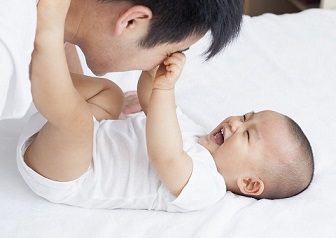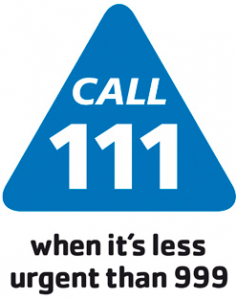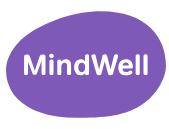Tips for parents in Infant Mental Health Awareness Week
 Parents in Leeds are being urged to consider their babies’ mental health as part of a national campaign.
Parents in Leeds are being urged to consider their babies’ mental health as part of a national campaign.
This week (June 12-16) is National Infant Mental Health Awareness Week which highlights the importance of the first 1,001 days, from conception to age two, in parent-baby bonding.
While the term Infant Mental Health may sound strange – people may wonder how mental health issues can affect those so young – the term refers to a baby’s emotional wellbeing.
There are more than 10,000 babies born in Leeds every year and Leeds Community Healthcare NHS Trust’s Infant Mental Health Service offers a wide range of support, including working directly with families.
If a baby feels safe and secure and experiences the world as a consistent, loving place, they will build a healthy brain and grow into a confident person who enjoys happy relationships.
Sue Ranger, Consultant Clinical Psychologist in Infant Mental Health, said: “A big challenge for parents and carers is to spend time watching their particular baby and just thinking about what the baby is communicating.
“This includes how the baby may be feeling, how active the baby is, how responsive they are and how alert they are. Babies can tell us when they feel uncomfortable; whether they are fussing and whether they are wriggling and squirming.
“Those kinds of behaviours, along with things like breathing and facial expression are all part of the picture.”
All new parents in Leeds are issued with a self-help guide called ‘Understanding Your Baby’ that includes reference to a traffic light system which helps them know when their baby wants attention and when they need a rest.
The system tells parents what behaviour means it’s ‘green for go’, what to watch out for when it’s ‘amber for caution’ and when it is definitely ‘red for stop’.
Sue said: “If the baby’s experience of the world is of parents and carers who understand them and can respond in an appropriate way, in a timely way, then those babies will experience the world as a safe, predictable and reliable place and those experiences will support their wellbeing and development.
“A baby who feels understood and gets the right care at the right time is a baby who will feel more content, safe and secure. This is the basis of good infant mental health.”
Sue added: “Awareness of the importance of infant mental health in Leeds is increasing and we are doing a lot of work around awareness and training.
“Thinking about infant mental health is important in the prevention of significant mental health difficulties later on in life.
“The foundations of healthy relationships, self-esteem and resilience in the face of life’s challenges are laid down in the earliest weeks and months of life.”
Films featuring Leeds Community Healthcare NHS Trust expertise and produced with funding from Leeds Clinical Commissioning Groups (CCGs) are available to view on the charity Best Beginnings’ website.
They have also developed an award-winning mobile app aimed at parents and parents-to-be called Baby Buddy, which is free to download.
Tips to help support your baby’s emotional wellbeing:
• Talk to your baby – and listen to what they are telling you! Make sure they can see your face and you can see theirs as much as possible.
• Take time to get to know your baby. Watch them and think about how they are feeling.
• Respond to your baby when they cry and reassure them. They are letting you know they need you. Providing comfort and care when your baby cries won’t ‘spoil’ them. In fact the opposite is true. If you respond promptly when your baby cries in the early weeks of life they will cry less, not more, as they get older.
• Try to keep your baby physically close when they are very young. Skin-to-skin contact and cuddles help your baby feel safe and secure. Baby carriers can help with this.
• Don’t expect to be perfect (no parent can be!). Your baby just needs you to do your best.
Infant Mental Health Myths:
Babies don’t do anything except eat, sleep and poo!
It might be easy to think that, but this is far from the truth! The first two years of life are when babies’ brains are growing the fastest. Lots of connections are being made in their brain every second, and the experiences that your baby has will determine which connections are made.
Because your baby doesn’t talk to you, you don’t need to talk to them
Babies can recognise your voice and those who you are closest to from before they are born! Hearing your voice will help them to feel comforted and secure. Also, hearing different words will also help them when the time does come to begin talking
Babies who get lots of attention will become spoilt and demanding
As with all relationships, it’s important to help your baby to feel safe and secure. If you respond to your baby with care and attention when they need you to, they will feel secure and because of this will often be less demanding
‘Clinginess’ should be discouraged
Babies go through phases, as part of their normal, healthy development, where they may want to be closer to you to feel safe. It’s important that you respond to these signals from your baby to provide comfort and support. Responding to your baby in this way won’t make your baby more ‘clingy’!
Lots of stimulation is always good for babies
Babies need support from their caregiver to regulate themselves, otherwise they might become overloaded. Recognising when things might be getting a bit too much, or that your baby might need a change of pace, can help to prevent this. There are lots of ways that babies communicate their needs, the ‘Understanding you Baby’ booklet, given to you by your Health Visitor, has lots of useful information.
Babies can ‘pull themselves together’ or ‘sort themselves out’ when they’re upset
Babies are learning to regulate their emotions and need support and comfort to help them to calm down when they’re distressed.


